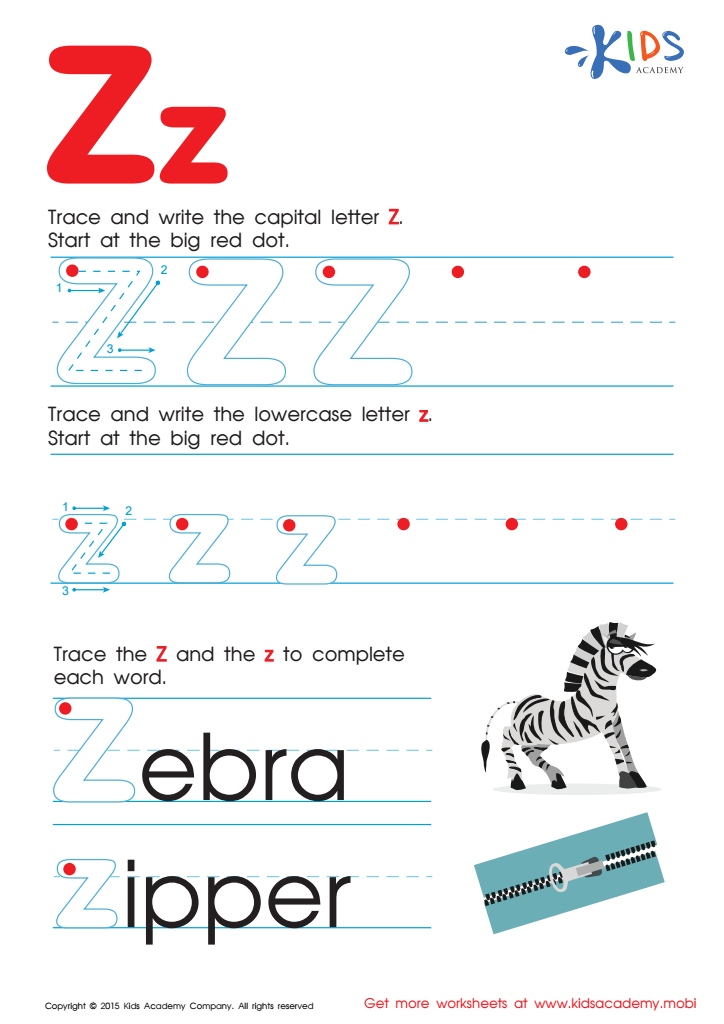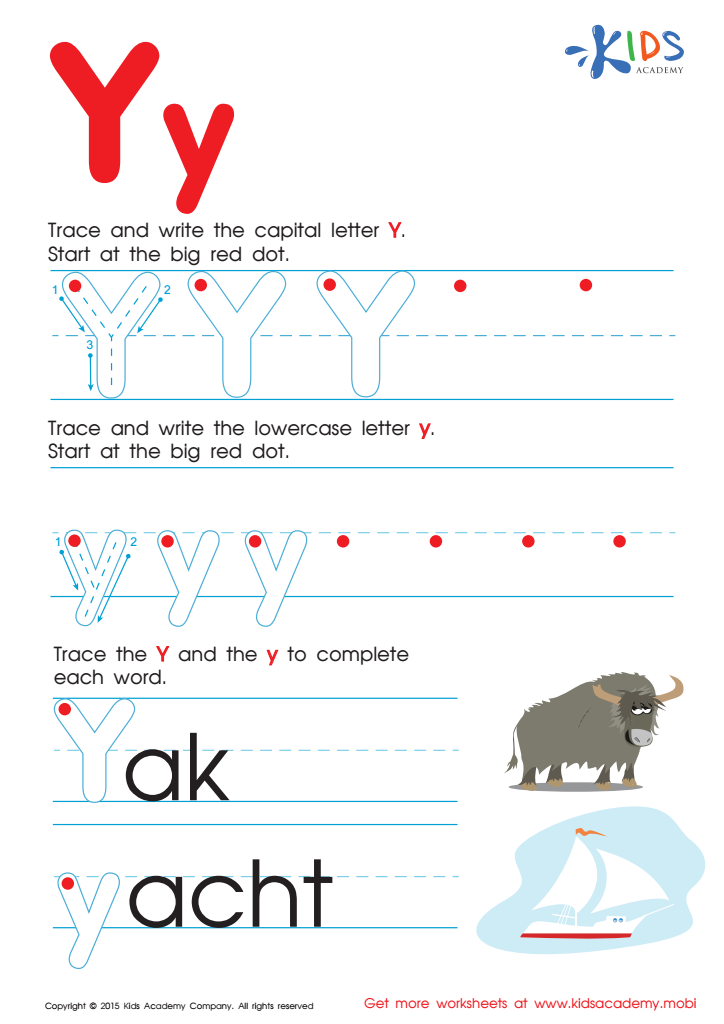Alphabet Recognition Extra Challenge ABC Order Worksheets for Ages 4-6
3 filtered results
-
From - To
Enhance your child's alphabet recognition skills with our engaging "Alphabet Recognition Extra Challenge ABC Order Worksheets" designed for ages 4-6. These carefully crafted worksheets provide a fun and interactive way for early learners to practice identifying letters and arranging them in the correct order. Ideal for strengthening essential literacy skills, these activities promote not only letter recognition but also fine motor skills as children trace and write. Featuring vibrant illustrations and age-appropriate challenges, our worksheets make learning enjoyable and effective. Foster your child's love for learning and set a strong foundation for their reading journey today! Get started now!


Letter A Tracing Page


Letter Z Tracing Page


Letter Y Tracing Page
Alphabet recognition is a fundamental building block for literacy development, making the Extra Challenge ABC Order an essential activity for children aged 4-6. Understanding the letters of the alphabet and their sequential arrangement fosters cognitive skills, promotes phonemic awareness, and lays the groundwork for reading and writing.
Parents and teachers should care about this challenge because it engages young learners in a fun, interactive way that enhances memory retention. When children practice arranging letters in alphabetical order, they not only reinforce their recognition skills but also develop organizational abilities that are crucial in their educational journey. This foundational skill supports their transition to more complex literacy tasks, including reading comprehension and writing fluency.
Additionally, incorporating this challenge promotes a growth mindset. It encourages children to approach learning with curiosity and resilience as they face new challenges. In a collaborative environment, such as classrooms or homes, it fosters communication and social skills through shared learning experiences.
By investing time and resources in activities like the Alphabet Recognition Extra Challenge ABC Order, parents and teachers affirm the importance of early literacy and literacy confidence, setting the stage for lifelong learning and an appreciation for reading.
 Assign to My Students
Assign to My Students
















